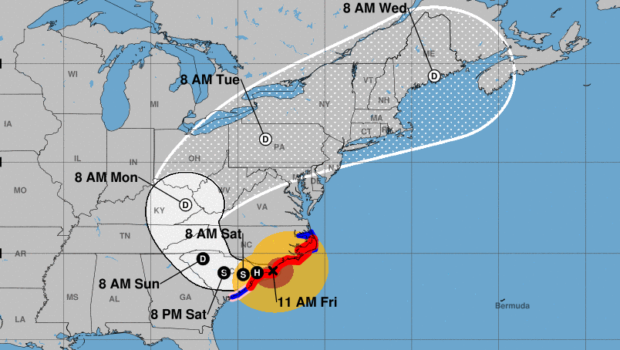
EDITORIAL: Hoboken Runoff Referendum — Vote YES, for Better Candidates
EDITORIAL
by Christopher Halleron
hMAG doesn’t endorse candidates. It’s our belief that media outlets backing individual politicians can leave questions about integrity—warranted, or unwarranted. We also don’t accept advertising from political campaigns. That may be self-defeating—particularly in the contemporary media marketplace—but in the end it just feels cleaner.
Despite what you may have been told about the issue of Hoboken’s Runoff Referendum, this isn’t about individual politicians. It’s about what is best for the City of Hoboken.
Essentially, the Hoboken Runoff Referendum is a vote on whether or not you believe there should be a runoff election between the top two candidates, in the event that the winner has less than 50% of the vote.
When Hoboken’s 2017 Mayoral Campaign took shape, we applauded the fact that a relatively large field had made the decision to participate. We had hoped it would inspire the candidates to be better, with the aim of attracting broader support from a wide variety of the Hoboken’s socioeconomic backgrounds. We had hoped that it would engender a sense of civility in what is typically a gruesome civic exercise.
We also acknowledged that we were being a bit “wide-eyed”…
As it turned out, the Hoboken 2017 Election was one of the most divisive campaigns this city has ever seen—and that’s saying something. Rather than reaching out to build coalitions of support, front-runners simply circled the wagons and slugged it out. Ultimately, the winner of that brutal gauntlet emerged to assume office with less than 33% of the vote—which means two out of three voters in Hoboken voted against the winner, who will now preside for a four-year term. In a city of over 55,000 residents, the chief municipal executive received a total of 5,041 votes.
One reason for the schismatic bitterness of the 2017 campaign was the notion that candidates were fragmenting support from other candidates, creating a situation where voting blocs—the phenomenon where segments of the electorate align behind an individual, motivated by a particular special interest—had a greater impact. Historically, Hoboken’s voting blocs can be agenda driven… or sometimes straight-up bought and paid for.
Under the current system, where there is no runoff, those blocs are essentially empowered. When you can win so much with so little, cabals of special interests have a far greater potential to decide the outcome of the election. However, in the event of a run-off, a Mayoral candidate would need to maintain accountability throughout the campaign, given the need to eventually appeal to the majority should they fail to garner more than 50% of the vote.
There’s a lot of discussion about Ranked Choice Voting, or Instant Runoffs—where voters select a number of candidates in order. It sounds like a terrific option. Unfortunately, it’s currently not an option in New Jersey. Until it is, the runoff remains the best possible option when it comes to restoring a majority rule.
There’s also a lot of concern about low voter turnout in a follow-up election. Once again, restoring the runoff would require candidates to actively appeal to larger swathes of the electorate. When the runoff was eliminated in 2012, it was done as part of a referendum that moved the Hoboken municipal election from May to November. At the time, there were campaigns underway in the city every six months, essentially exhausting the share of mind. Adding a second vote weeks after the initial election may seem somewhat daunting, but it will at least maintain a sense of momentum.
If you’re running for political office, and your primary concern is that not enough people would bother to show up and vote for you, then maybe you’re not doing it right. In the case of a runoff election, candidates will need to look inward at their campaign strategies and make the effort to establish a broader appeal. The onus remains squarely on the candidate—because elected leaders better serve the greater good by galvanizing support.
Hoboken needs more voices in its government, not fewer. The city needs candidates who are willing to listen to those voices, and perhaps even strive to answer them in the initial general election. Should a candidate receive more than 50% of the vote, the issue of a runoff would be moot.
With all its cataclysmic changes over the years, there remains a tremendous diversity in Hoboken—one that can only be maintained by appealing to the needs of a wider range of residents. Sure, democracy can be cumbersome at times, but a basic majority rule in support of the municipal chief executive doesn’t seem like too much to ask.
(EDITOR’S NOTE: After 20+ years as a Hoboken resident, the author recently relocated to nearby Jersey City Heights. While he will not be voting in this Hoboken election, he did vote in the last Hoboken election, and numerous prior elections. And while the author is no longer a registered voter and/or resident of Hoboken, hMAG remains focused on the issues facing our friends, neighbors and readers in the Mile Square City.)
*********************
 Christopher M. Halleron is the Publisher/Editor of hMAG.
Christopher M. Halleron is the Publisher/Editor of hMAG.
As a columnist and journalist, he has covered various aspects of life here in the ‘greater Hoboken area’ and beyond for the past two decades.
His opinions are his own.

 Previous Article
Previous Article Next Article
Next Article Another Punch Thrown in Dockyard Brawl, as NY Waterway Sues Hoboken Over Stop Work Order at Union Dry Dock
Another Punch Thrown in Dockyard Brawl, as NY Waterway Sues Hoboken Over Stop Work Order at Union Dry Dock  Hoboken Up To 15 Confirmed Cases of Coronavirus, 66 in Hudson County, 890 Statewide — Riverside Opening Testing Center Saturday
Hoboken Up To 15 Confirmed Cases of Coronavirus, 66 in Hudson County, 890 Statewide — Riverside Opening Testing Center Saturday  Putting Hoboken on the Map—Should NYC Have to Publicly Acknowledge the Existence of NJ?
Putting Hoboken on the Map—Should NYC Have to Publicly Acknowledge the Existence of NJ?  EMINENCE WATERFRONT: Hoboken Pushing the Last Pieces of Puzzle Into Place on the Hudson
EMINENCE WATERFRONT: Hoboken Pushing the Last Pieces of Puzzle Into Place on the Hudson  HUSTLE & FLO: Hurricane Florence Likely to Turn North, Impacting NYC Metro Early Next Week
HUSTLE & FLO: Hurricane Florence Likely to Turn North, Impacting NYC Metro Early Next Week  Errant Post Brings Mayor of Hoboken’s Social Media Practices Under Scrutiny
Errant Post Brings Mayor of Hoboken’s Social Media Practices Under Scrutiny  Hoboken Addresses Questions About COVID-19 Statistics
Hoboken Addresses Questions About COVID-19 Statistics  DON’T GO ANYWHERE: Hoboken’s Traffic & Transit Goodie Bag Hands Out the Same Ol’ Prizes This Weekend
DON’T GO ANYWHERE: Hoboken’s Traffic & Transit Goodie Bag Hands Out the Same Ol’ Prizes This Weekend